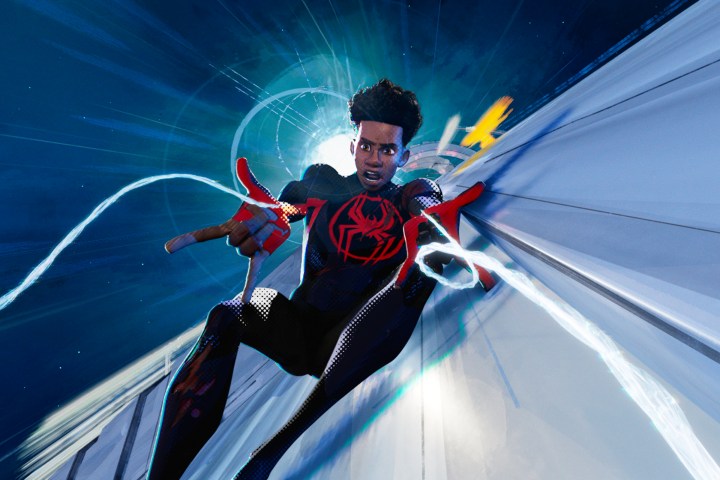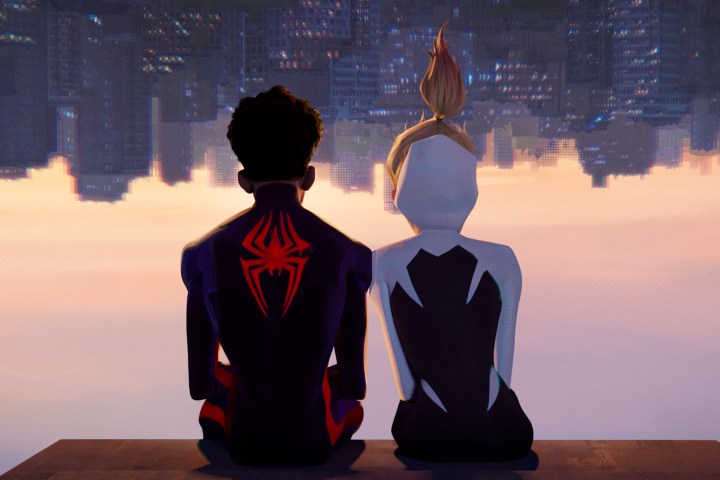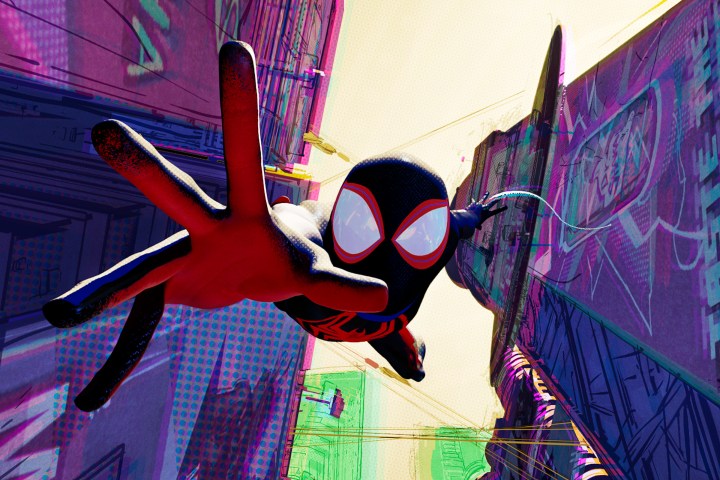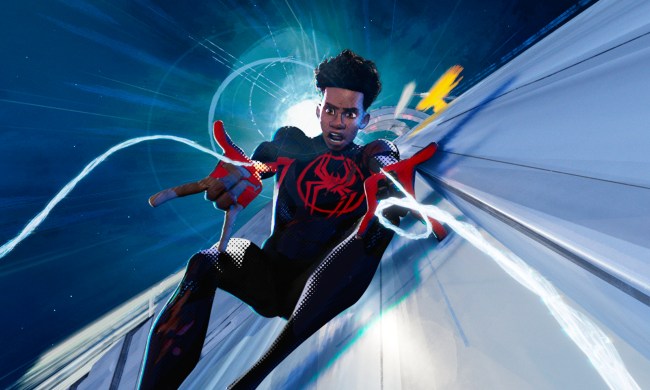
Things weren’t looking good for the superhero genre earlier this year. While it’d be a stretch to say that it’s taken just one movie to turn things around, Spider-Man: Across the Spider-Verse has done a lot to improve moviegoers’ and critics’ shared perception of the genre that has more or less dominated Hollywood for the past 20 years. To put that another way: If Ant-Man and the Wasp: Quantumania felt like the final nail in the superhero genre’s coffin and Guardians of the Galaxy Vol. 3 nothing more than its final, cathartic last breath, then Across the Spider-Verse might as well be the shot of adrenaline that has brought it back to life.
Whether or not the genre can continue to keep itself alive remains to be seen. Upcoming films like The Flash and The Marvels, unfortunately, don’t look all that promising right now. But Across the Spider-Verse doesn’t just breathe new life into a previously dying genre. It also offers a guide to what big-screen superhero stories could — and should — strive to be like in the years to come.

Spider-Man: Across the Spider-Verse is a bigger and bolder film than its predecessor, 2018’s Spider-Man: Into the Spider-Verse. Not only does the film feature even more art styles and characters than Into the Spider-Verse, but it also relies on more than just one protagonist to tell its story. In its second half, Across the Spider-Verse even plays around with comic book lore in ways that no other superhero movie really has, and goes so far as to make the actual restrictive nature of established canon a key part of its plot.
Along the way, the film throws out more Easter eggs, cameos, and references than fans will likely be able to process upon first viewing, including clips from some of Sony’s previous Andrew Garfield- and Tobey Maguire-led Spider-Man movies. In another film, the sheer amount of Easter eggs featured in Spider-Verse might make them feel distracting or, at worst, like nothing more than blatant nostalgia bait.
But there’s something about the playful way in which Across the Spider-Verse both references and connects itself to all of Sony’s other treasured web-slinging franchises that prevents it from feeling, well, cheap. Rather than be weighed down by its greater franchise obligations, Across the Spider-Verse feels weirdly and delightfully free of them.
The film simply doesn’t take itself or its place in its studio’s greater IP library too seriously. There’s something genuinely refreshing about that, and the same is true for the ways in which it both introduces and challenges established comic book canon. While it imbues its characters and their journeys with real earnestness, Across the Spider-Verse feels less beholden to the IP-driven world in which it exists.
It pulls off the rare feat of feeling both connected to everything that’s come before it and yet liberated of the rules set by those films, TV shows, and comic books. Even more importantly, Across the Spider-Verse chooses to interact with the actual form of cinema in ways that are both revolutionary and awe-inspiring.

By bringing such a light touch to its various franchise connections and Easter eggs, Spider-Man: Across the Spider-Verse offers a glimpse at a future for the superhero genre that isn’t defined solely by the strictures of longform, interconnected storytelling. Across the Spider-Verse could, in other words, herald a new age for superhero media — one that boasts the same lighthearted joy of comic books, but is also driven by an interest in engaging with the big-screen medium on which so many live-action and animated superhero adventures are told nowadays.
Spider-Man: Across the Spider-Verse is, after all, successful largely because of how well it captures the vibrancy and energy of comic books while still offering an experience that feels quintessentially cinematic. Now, it’s time for more superhero movies to start trying to pull off that same trick — even and especially if that means caring a little less about the overarching, TV-esque plots of their respective franchises.
Spider-Man: Across the Spider-Verse is now playing in theaters.



